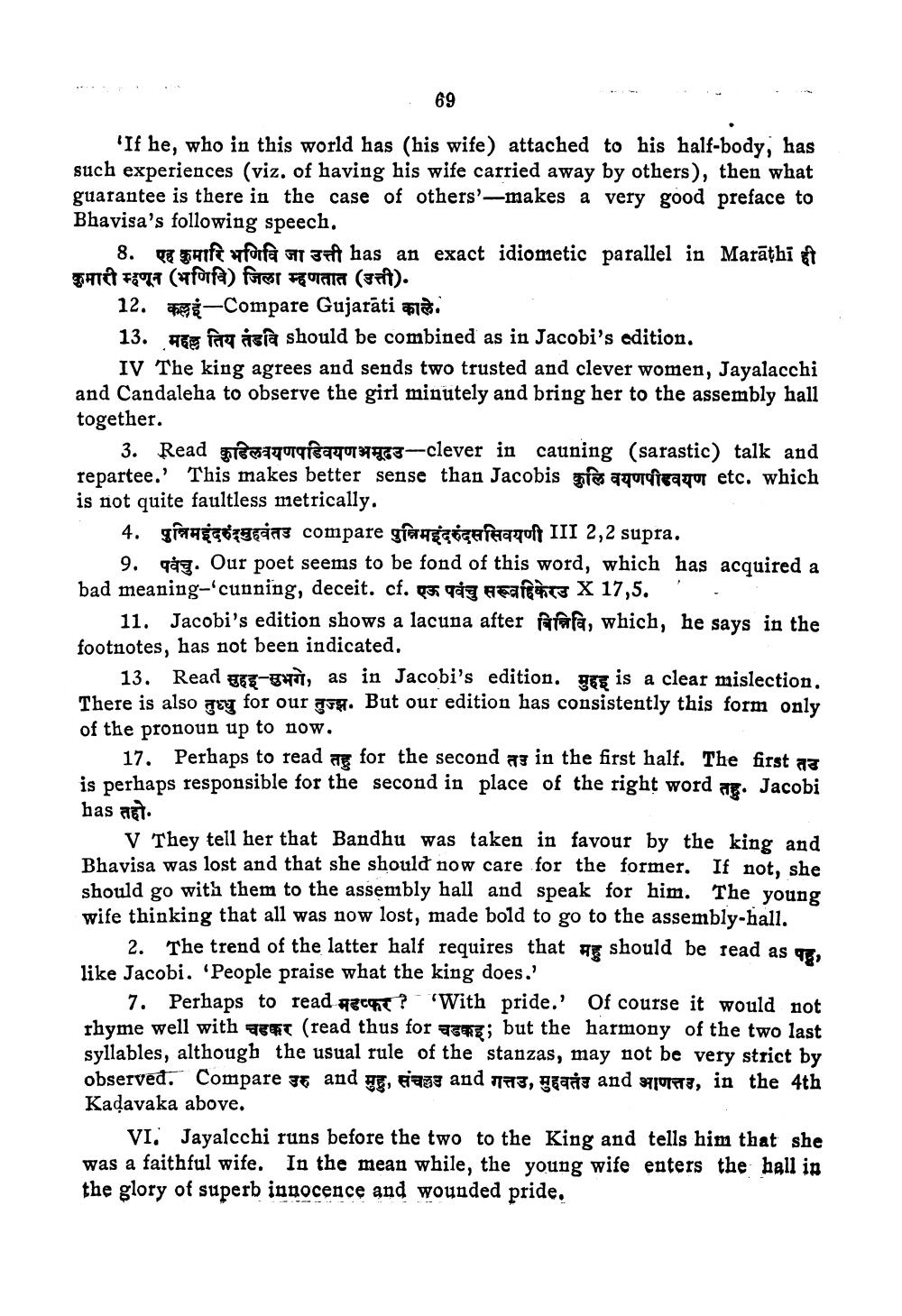________________
69
"If he, who in this world has (his wife) attached to his half-body, has such experiences (viz, of having his wife carried away by others), then what guarantee is there in the case of others'-makes a very good preface to Bhavisa's following speech.
___8. एह कुमारि भणिवि जा उत्ती has an exact idiometic parallel in Marathi ही SHTC FOOT (forfa) fra FETA (sn).
12. कलई-Compare Gujarati काले. 13. A fare azia should be combined as in Jacobi's edition.
IV The king agrees and sends two trusted and clever women, Jayalacchi and Candaleha to observe the giri minutely and bring her to the assembly hall together. 3. Read T
-clever in cauning (sarastic) talk and repartee.' This makes better sense than Jacobis i agureato etc. which is not quite faultless metrically.
4. पुनिमइंदरुंदमुहवंतउ compare पुनिमइंदरुंदससिवयणी III 2,2 supra.
9. gåg. Our poet seems to be fond of this word, which has acquired a bad meaning- cunning, deceit. cf. 935 Tåg heartace X 17,5.
11. Jacobi's edition shows a lacuna after farafa, which, he says in the footnotes, has not been indicated,
13. Readus- , as in Jacobi's edition. 983 is a clear mislection. There is also pay for our go. But our edition has consistently this form only of the pronoun up to now.
17. Perhaps to read ge for the second as in the first half. The first az is perhaps responsible for the second in place of the right word E. Jacobi has agt.
V They tell her that Bandhu was taken in favour by the king and Bhavisa was lost and that she should now care for the former. If not, she should go with them to the assembly hall and speak for him. The young wife thinking that all was now lost, made bold to go to the assembly-hall.
2. The trend of the latter half requires that ag should be read as 7, like Jacobi. 'People praise what the king does.'
7. Perhaps to read facit? With pride.' Of course it would not rhyme well with #T (read thus for acne; but the harmony of the two last syllables, although the usual rule of the stanzas, may not be very strict by observed." Compare 38 and E, pags and 1713, ataas and 31/01T3, in the 4th Kadavaka above.
VI, Jayalcchi runs before the two to the King and tells him that she was a faithful wife. In the mean while, the young wife enters the hall in the glory of superb innocence and wounded pride.




